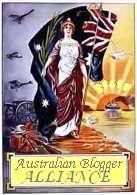Victims have their Say
Victim Impact statements are sometimes the forgotten part of the criminal justice system. It's the last theing the judge gets to see prior to sentencing. Our criminal justice system is not only about catching, charging, trying and punishing people who break the law. It is also about recognising and, as far as possible, supporting victims of crime.In many ways, our society looks upon criminal behaviour as our shared community failure. Our support for victims of crime is one way in which we seek to repair the damage that crime does to the whole of society.
So it's pleasing to see Attorney-General Michael Atkinson has reconvened his Victims of Crime Advisory Committee. He has announced that the committee will include representatives of all government departments which provide services to victims of crime, including SA Police and Corrections.
There will also be a community representative, Mrs Ivy Skowronski, and a representative with special expertise in the needs of people who have been the victims of sexual assault. Former police commissioner David Hunt will chair the group.
The Victim Support Service will also assist on the advisory committee, as will the Law Society. The Law Society representative will bring to the group the various perspectives of lawyers who work in criminal justice matters, whether as prosecutors or representing victims of crime or accused persons and offenders.
Mr Atkinson announced the formation of the new committee at a reception to mark the 20th anniversary of the South Australian Declaration of Victims Rights. SA was the first jurisdiction in Australia to acknowledge victims of crime in this formal way. Victims of Crime advisory officer Michael O'Connell spoke at the reception about the changes he had observed in the way society views crime. He recalled that when he was a police officer, victims were seen primarily as witnesses for the prosecution. Once they had served that purpose, the state took little further formal interest in them.
After the emergence of the Victims of Crime Association and the formal declaration of victims' rights, attitudes started to change. The police appointed victim liaison officers. I have had cause to speak with some of these over the years and they are warm, knowledgeable people who can explain police and legal procedure and help ordinary people to understand the process of investigation and prosecution. Infact much of my work is dealing with the VLO here in town.
Mr O'Connell also recalled the efforts of various individuals who had campaigned for victims' voices to be heard. As the justice system has become more conscious of the effect of crime on victims, methods have been found to enable the courts to receive formal victim impact statements.
These are now seen as an important part of the information that a sentencing judge or magistrate needs to consider when deciding penalties. These statements help the court see beyond the facts to the feelings.
The sentencing remarks made by judges and magistrates often reflect their careful reading of what the victim has said. It is far easier these days for judges to gain a real understanding of how crime has changed the victim's life.
The reconvened advisory committee will work in improving services to victims of crime. Representatives of the various government agencies will hear ideas from the victim and community representatives about how things can be better done.






0 Comments:
Post a Comment
Subscribe to Post Comments [Atom]
<< Home